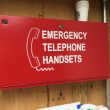Preparation is all

In this issue, Alan Tilles, who superbly authors the “Final Word” column each month, quotes Yogi Berra, the fabled Hall of Fame catcher for the New York Yankees. I, too, will be quoting a fabled baseball catcher in this column. But first I’d like to share an anecdote about my time as a Boy Scout roughly four decades ago.
That time didn’t last very long. My mother was overprotective and wouldn’t allow me to go on any of the troop’s campouts unless my father went along. My dad wasn’t really an outdoorsman, unless you counted grilling on the Weber. But that wasn’t the problem. That the campouts were held on weekends was, because my father worked weekends.
The only way one could rise above Tenderfoot status — and earn coveted merit badges — was to go on these campouts. So, I eventually succumbed to practicality and left the troop. But while I never oriented a map or slept in a tent that I personally pitched, I did walk away with something quite useful: the Boy Scout motto, which is, “Be prepared.”
Which brings me back to fabled baseball catchers and their pearls of wisdom. In the movie “Bull Durham,” the grizzled catcher “Crash” Davis tells the inexperienced and immature pitcher “Nuke” LaLoosh — whom Davis has been hired to both tutor and mentor — to cease thinking, so as to avoid hurting the team. What Davis meant was that baseball is best played instinctively.
Of course, the ability to play instinctively is borne of countless hours of drills. Over and over, coaches simulate situations so players can react to them during games without thinking. After a while, fielders know exactly what they are going to do should the ball find them, without a moment’s hesitation — something that is quite useful when runners are scurrying around the bases.
I thought about this as a result of writing “Chaos theory.” Some wonder why no national certification program exists for 911 call-takers and dispatchers. Given the nature of the job, it seems a reasonable question.
Generally, when people call 911, it is because they are in crisis. The decisions made by those who field and process those calls often mean the difference between life and death. That’s a lot of pressure. People often wilt under such pressure — unless they have prepared so well, and so thoroughly, that they are able to act instinctively — and trust those instincts.
Yet, the ongoing, rigorous training and competency tests that would help to ensure that 911 call-takers and dispatchers perform with aplomb in even the most intense situations is sorely lacking. That needs to change. They deserve better. So does the public they serve.
What do you think? Tell us in the comment box below.
Related Stories

















